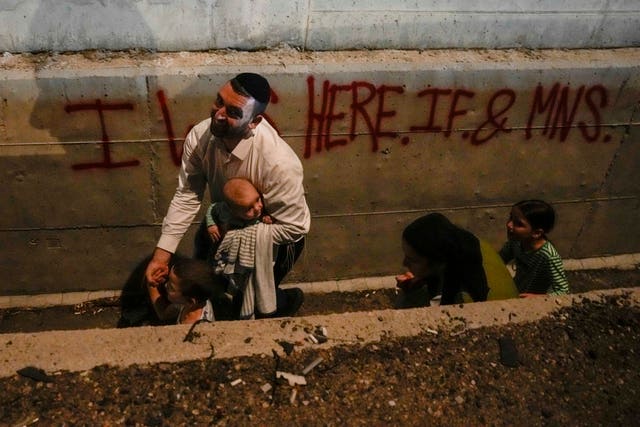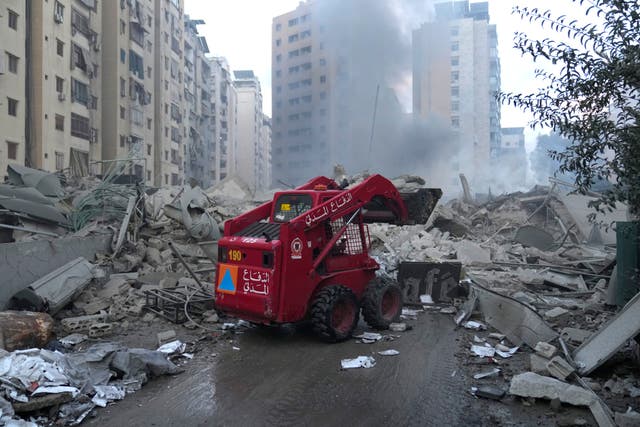Iran and Israel swap threats following missile barrage
The Middle East is moving closer to a long-feared wider regional conflict.

The Middle East is moving closer to a long-feared regional war the day after Iran fired a barrage of missiles at Israel.
The move came as the Israelis said they had begun limited ground incursions into Lebanon targeting the Iranian-backed Hezbollah militia.
Israel said it intercepted many of the missiles fired by Iran, and officials in Washington said US destroyers had assisted in Israel’s defence.
Israeli Prime Minister Benjamin Netanyahu vowed late on Tuesday to retaliate against Iran, which he said “made a big mistake tonight and it will pay for it”.
An Iranian commander threatened wider strikes on infrastructure if Israel retaliates against Iran’s territory.

Israel and Hezbollah have traded fire across the Lebanon border almost daily since October 8, the day after Hamas’ cross-border attack on October 7 2023, which killed 1,200 Israelis and took 250 others hostage.
Israel declared war on the militant group in the Gaza Strip in response.
More than 41,000 Palestinians have been killed in the territory, and just over half the dead have been women and children, according to local health officials.

Mr Scholz issued a statement on Wednesday strongly condemning Iran’s missile barrage against Israel the previous evening.
He said that “with this, Iran is risking setting the whole region on fire — that must be prevented under all circumstances. Hezbollah and Iran must cease their attacks on Israel immediately”.
The Chancellor added that Germany will continue to push for a ceasefire between Israel and the Hezbollah militant group, which he said must lead toward full implementation of a UN Security Council resolution that calls for Hezbollah to withdraw from the area near the Israeli border.
Mr Scholz said that would “clear the way for people to return to the north of Israel and at the same time open a prospect of consolidating Lebanon’s statehood”.





